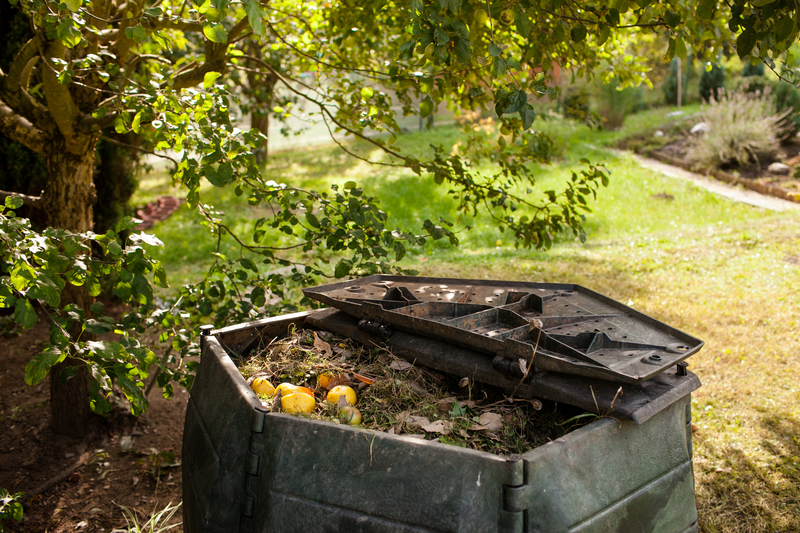Where and How to Safely Recycle Your Pots and Pans
Are your old pots and pans taking up precious kitchen space? If you're looking for responsible ways to dispose of unwanted cookware, you're making an eco-conscious choice. Recycling pots and pans not only prevents waste from ending up in landfills but also supports the environment by repurposing valuable materials. This comprehensive guide covers where and how to safely recycle your pots and pans, creative alternatives to disposal, and actionable tips so you can let go of your kitchenware guilt-free.
Why Is Proper Pots and Pans Disposal Important?
The average person discards several pans and pots every decade as their kitchen needs evolve or the cookware wears out. However, improperly discarding cookware can cause significant harm:
- Landfill Pollution: Many pots and pans contain materials that never degrade; instead, they clog up landfills for centuries.
- Resource Wastage: Most kitchenware is made from highly recyclable metals such as aluminum and stainless steel, both of which are energy-intensive to mine.
- Chemical Leaching: Improperly dumped nonstick pans can release hazardous coatings into the environment.
Safely recycling your cookware reduces pollution and saves resources, creating a more sustainable home and planet.

What Types of Pots and Pans Can Be Recycled?
Not all kitchenware can be recycled in the same way. Here's how to identify which items your local recycling facilities may accept:
- Aluminum Pans: One of the most recyclable metals, often accepted by scrap yards and recycling centers.
- Stainless Steel Cookware: Widely recyclable due to its high metal content.
- Copper Pots: Accepted at scrap metal centers, but may fetch a higher price due to copper's value.
- Cast Iron: Extremely long-lasting and recyclable at scrap dealers.
- Nonstick Coated Pans: Most recycling facilities require you to remove the coating before accepting these pans, since Teflon and similar substances are not recyclable.
Glass, ceramic, or enamel cookware (like Pyrex) typically can't be recycled with glass bottles and jars. Check local guidelines--some cities have special collection events for these items.
Where to Recycle Pots and Pans Near You
Finding the right place to recycle old pots and pans depends on your location and the cookware's condition. Here are excellent options:
1. Municipal Recycling Programs
Most cities include instructions for recycling metals in their curbside collection. Check your local recycling rules (usually on your city's government website) for details. Often, they'll accept cookware in the "scrap metal" bin but may require removal of plastic handles or lids.
- How to Prepare: Remove any non-metal components (handles, knobs, lids). Clean thoroughly. Bundle smaller items for easy handling.
- Accepted Materials: Aluminum, stainless steel, and cast iron are most common; nonstick or ceramic may not be accepted.
2. Scrap Metal Yards
Metal recycling facilities or scrap yards will often accept pots and pans regardless of condition--and may even pay you for valuable metals. Search online for local scrap metal dealers, or use resources like Earth911 ("Where to Recycle Pots and Pans Near Me" queries can be helpful).
- How to Prepare: Separate metal types if possible; remove non-metal parts for better pricing.
- Accepted Materials: Aluminum, copper, stainless steel, and cast iron. Nonstick coating may decrease value, so consider scraping it off where possible.
3. Retailer Take-Back Programs
Some kitchen stores offer take-back recycling programs when you buy new cookware. These stores may partner with recycling firms to properly handle old items.
- National Examples: Sur La Table and Williams Sonoma occasionally run trade-in events. Call ahead to check, as availability can vary by store and region.
- How it Works: Bring your old pots and pans when shopping for replacements. The retailer will direct them for recycling or donation.
4. Special Collection Events
Many communities host annual or seasonal recycling days for hard-to-recycle household items such as kitchen cookware, small appliances, and electronics. These events are promoted by city governments or environmental nonprofits.
- How to Find: Search your city's website for "household recycling event," or ask at your local public works office.
5. Donation Centers and Charities
If your pots and pans are still safe and functional--even if they're a bit scratched or stained--consider donation instead of recycling! Many local charities and thrift stores will accept them, giving your old cookware a new lease of life.
- Good Options to Try: Goodwill, Salvation Army, Habitat for Humanity ReStores, local shelters, and food banks.
- Guidelines: Must be clean and usable. Most groups accept cookware that is only lightly worn, with no missing parts or excessive chipping.
Always call ahead--guidelines vary by location and current need.
How to Safely Prepare Your Pots and Pans for Recycling
Preparation is crucial to ensure your cookware is accepted and processed properly. Here's how to get your pans ready for recycling:
- Remove Non-Metal Parts: Take off plastic or wooden handles, lids, and rubber coatings. These materials usually aren't accepted in metal recycling.
- Wash Thoroughly: Clean your pots and pans to remove food residue, oils, or dirt.
- Separate by Material: If you have various types (aluminum, stainless, nonstick), keep them apart to help with sorting.
- Check for Hazardous Coatings: Teflon/polytetrafluoroethylene (PTFE) or similar coatings should be removed where possible, as these are not recyclable and may release toxins when melted.
When in doubt, contact your local recycling facility for material-specific guidance.
Creative Ways to Repurpose Old Pots and Pans
Instead of immediately sending unwanted pans to recycling, consider upcycling or repurposing them around the house. A little creativity can give cookware a second life and prevent waste entirely!
- Planters: Drill a drainage hole and fill an old pot with soil for an instant rustic planter.
- Storage Solutions: Use clean old pans to store tools, art supplies, or hardware in your garage or craft room.
- Garden Art: Stack or paint old pots for whimsical outdoor sculptures.
- Decorative Trays: Frying pans with handles removed make charming vintage trays or wall art.
- Bird Feeders: Hang a shallow pan from a tree as a bird feeder or small animal shelter.
Upcycling is both fun and eco-friendly!
Common Pitfalls and FAQ: Recycling Kitchen Cookware
Can cookware with Teflon or nonstick coating be recycled?
It depends. Most municipal recycling centers and scrap yards do not accept nonstick coatings due to environmental hazards. You may need to scrape off the coating with sandpaper or a wire brush, or research specialized hazardous waste programs for disposal instructions.
Are glass and ceramics recyclable with metals?
No. Glass, ceramic, and enamel cookware cannot be recycled with metal or standard glass containers. Some cities host special collection days for these materials, or they may need to go to landfill if such a program isn't available.
Can broken or damaged cookware be donated?
Only cookware that is still safe to use should be donated. Cracked, rusted, or warped pans are best recycled as scrap metal rather than given to charities or thrift shops.
Are there recycling programs for brand-specific cookware (e.g., Calphalon, Le Creuset)?
Some premium brands--such as Calphalon, Le Creuset, and GreenPan--have their own take-back or trade-in programs. Check the manufacturer's website or customer support for current initiatives; these are often available during promotions or at specific store locations.
Recycling Pots and Pans: Environmental Impact
Why is it so important to recycle kitchenware? Here are the key environmental reasons:
- Conserves Natural Resources: Mining metals like aluminum, copper, and iron requires enormous energy. Recycling these materials from cookware uses only a fraction of that energy.
- Reduces Landfill Waste: Pots and pans are not biodegradable. Keeping them out of landfills prolongs landfill lifespan and reduces soil and groundwater pollution.
- Decreases Greenhouse Gas Emissions: Smelting virgin ore produces more CO2 than recycling existing metals.
By recycling or donating unwanted pots and pans, you're making a meaningful difference. Every pan recycled is a win for the planet.

Quick Recap: Steps for Responsible Pot and Pan Recycling
- Identify your cookware's material: Is it metal, ceramic, or glass?
- Prepare it for recycling: Clean and remove non-metal additions.
- Research your local recycling options: Check curbside program rules, scrap yards, or special events.
- Call or search online for details before you drop anything off.
- Consider donation or creative reuse if the item is still functional.
Conclusion: Recycling Pots and Pans the Right Way
Recycling old cookware shouldn't be a headache. The key is to research your local kitchen ware recycling options, prepare your items properly, and always explore creative reuse or donation first. By doing so, you're helping conserve natural resources, prevent waste, and create a cleaner future for everyone. The next time you upgrade your pots and pans, remember that responsible disposal is always in style!
Ready to recycle? Use the tips above to make your cookware disposal both eco-friendly and hassle-free.
